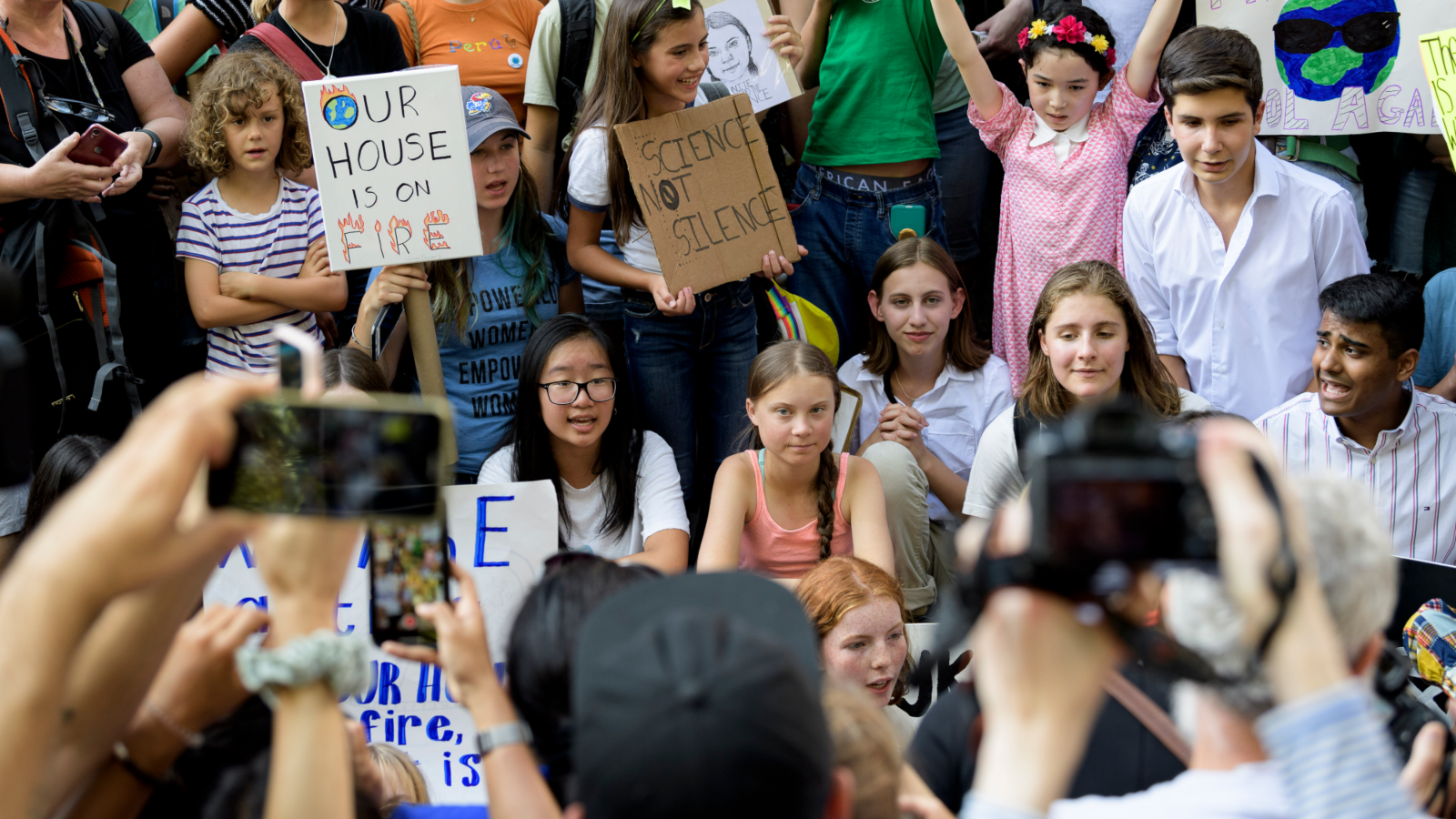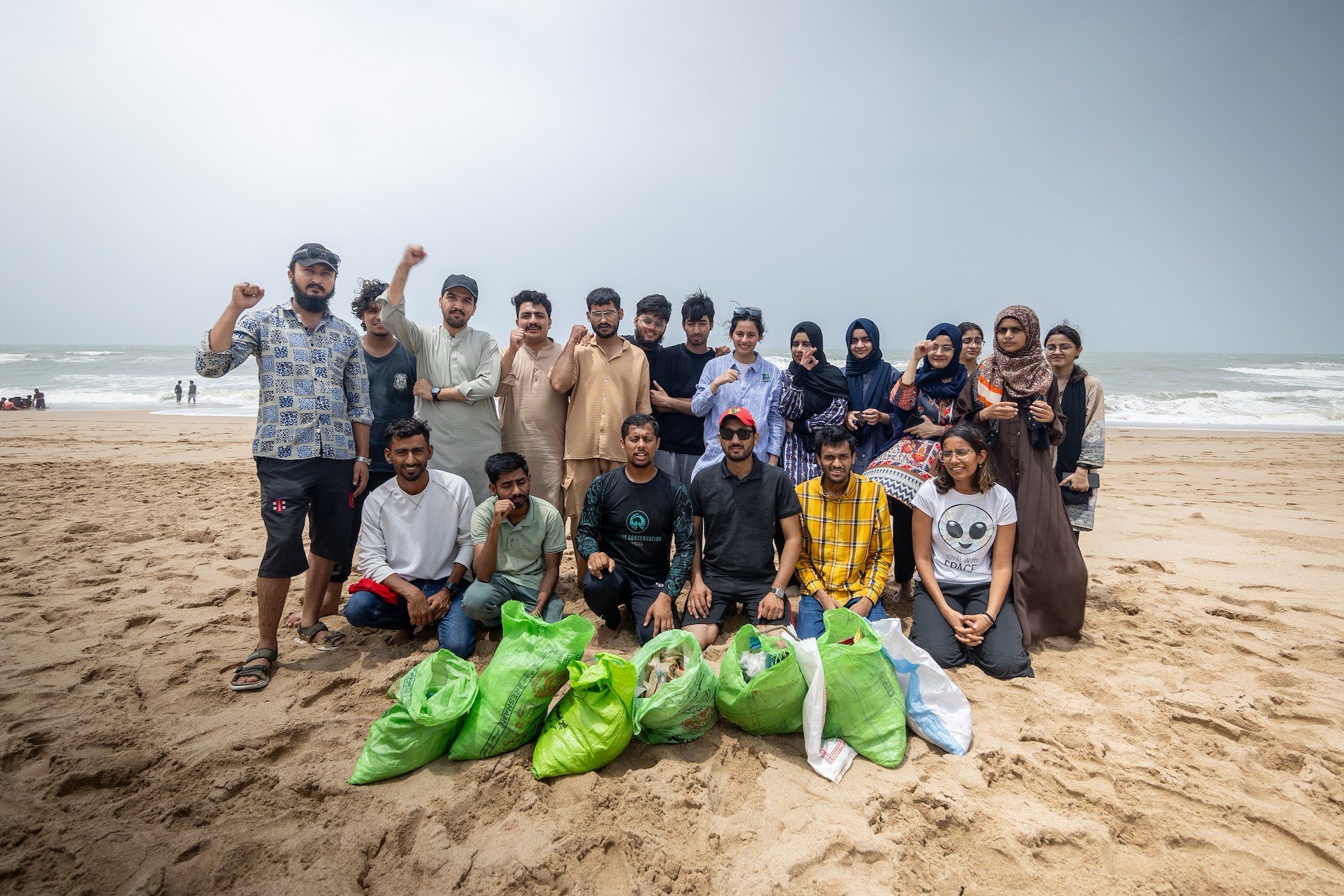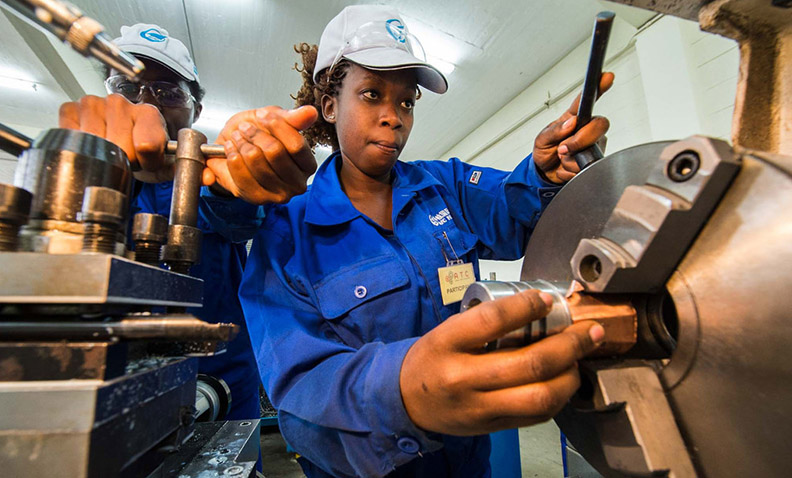Find out more in
Global Issues:
Rural young people are vital to global development, with nearly half of the world’s 1.3 billion youth living in rural areas and brimming with entrepreneurial potential. Yet they often lack access to opportunities that enable them to thrive. Targeted investments, through IFAD’s youth-sensitive programmes, are unlocking that potential — creating jobs, fostering agribusiness leadership and strengthening rural economies. By nurturing skills, providing access to finance and connecting youth with markets, initiatives like Agribusiness Hubs empower young people to build sustainable futures in their communities rather than migrating elsewhere. These success stories underscore why investing in rural youth is essential for food security, economic growth and lasting stability.
“Leaving young people at the sidelines of how we find solutions is not the way. It's really bringing them [in], because on many of the things, the solutions will come from them.”
A medical doctor by training, Dr. Felipe Paullier is a passionate advocate for young people. Two years ago, aged just 32, his life took a new turn when he became the first-ever Assistant Secretary-General for Youth Affairs, the youngest senior appointment in the history of the United Nations.
“I've heard this from the Secretary General. You know, power, in essence, is not to be given, it's to be taken. ”
The UN Youth Office believes that positive change is rooted in empowering young people to meaningfully participate in decisions that impact their lives and futures. In this episode of Awake at Night, Felipe reflects on youth demands for peace and opportunity, on the stubborn barriers to change, and shares why he always prescribes reconnecting with nature as a cure for digital overwhelm.
Photo: ©YuWaah (GenU India)
The world is heating. Inequalities are deepening. And yet, across continents, young people are stepping into the cracks of broken systems and reimagining what’s possible. While the world works to respond to the climate crisis, youth from around the world are showing what happens when youth are not just invited to the table but trusted to lead. This article introduces five of these young leaders: Sundus from Pakistan (seen here with her team that brings damaged reefs back to life), Elvis from Liberia, Luís from Bolivia, Pablo from Colombia, Specioza from Uganda. All of them, with support of Youth4Climate, are building new systems of food, energy, mobility and education, from the ground up. Their projects are different, but their experiences and drive are shared. What they show us is clear: when young people are trusted and supported with the right resources, they can drive meaningful and lasting change.
Across Latin America and the Caribbean, young leaders are rising to confront the climate crisis, advocate for justice, and build resilient communities.
When he began practicing medicine several years ago, Dr. Jürgen Adam Sánchez believed his role was to treat diseases. However, working closely with migrant children and adolescents, he quickly realized that the deepest pain is often not physical but rooted in the stories these young migrants carry with them along their journeys. Sánchez is a Mexican physician specializing in public health based in Hermosillo, Sonora. At 29, he has served as a shelter coordinator, university professor, and activist. Sánchez advocates for compassionate healthcare and believes in the potential of migrant youth to break cycles of violence, emphasizing the importance of strong peer support networks alongside access to services. He is committed to creating a fairer world for migrants.
Kabelo Motlhophe never thought he would move from a cleaning job to a leadership role in local government. After witnessing a civic education workshop while cleaning, he became intrigued and decided to join the training sessions by Activate! Change Drivers, a youth empowerment network. This led him to run for election as a ward councillor in Mamelodi, where he won in 2021. Motlhophe credits the training, especially on public participation rights, as key to his success. Activate! partners with UN Human Rights Regional Office for Southern Africa to promote youth engagement in civic life and participation in public affairs.
Young people are at the forefront of global transformation. With more than 1.2 billion youth worldwide, their energy, creativity, and activism are vital to achieving the Sustainable Development Goals (SDGs). The 30th anniversary of the World Programme of Action for Youth in 2025 offers a timely opportunity to renew our commitment to its core principles: youth agency, participation in decision-making processes, and sustainable development. A peaceful and prosperous future depends on the meaningful inclusion of youth everywhere. Explore how youth are shaping a better, more just future for all.
Observed annually on 12 August, International Youth Day raises awareness of the challenges and opportunities facing young people. This year’s theme, Local Youth Actions for the SDGs and Beyond, urges concrete action to empower youth as partners in development—turning global goals into local solutions for a just, peaceful, and sustainable world. Join forces to empower young people's solutions for peace, sustainability, and justice. In line with this, the Secretary-General announced the appointment of 14 young leaders to the third cohort of his Youth Advisory Group on Climate Change. #YouthDay
A group of 45 young human rights advocates from all over the world gathered recently in Geneva for a Youth Rights Academy. They emphasized the importance of knowing their rights to create real change, with speakers like Avril Murillo from Bolivia and Yara Al-Zinati from Gaza highlighting how young people understand the urgency of the situation today. The Academy was set up through a partnership between UN Human Rights and Qatar’s Education Above All, focusing on empowering youth, especially in conflict zones. They previously launched a Youth Advocacy Toolkit to help with this mission. During the Academy, participants engaged in workshops covering various topics such as international law, education rights, the climate crisis, and how to use social media for advocacy.
UN Women spoke with four young changemakers who are localizing the Sustainable Development Goals (SDGs) through bold feminist leadership. Their message is clear: invest in youth-led action, especially by young women and girls.
On its 10th anniversary, World Youth Skills Day (15 July) focuses on empowering youth through artificial intelligence (AI) and digital learning. Today, 7 in 10 young people—some 450 million—are disconnected from economic opportunities due to a lack of adequate skills. From basic literacy to advanced digital and AI skills, empowering young people helps them not only adapt, but lead change. On this day, add your voice to the global celebration! Use #WorkLifeReady and #YouthLead to share your story and uplift others on the path to success.
As key agents of change, the current generation of young people must increase food production, replace an aging workforce, and adapt to increasing extreme climate events. With 1.3 billion individuals aged 15 to 24 globally, the Food and Agriculture Organization of the United Nations (FAO) has released a comprehensive report titled “The Status of Youth in Agrifood Systems,” which examines and emphasizes the crucial role of youth in transforming agrifood systems to improve food security, nutrition, and economic opportunities.
With 1.2 billion young people in emerging economies reaching working age over the next decade—and only about 420 million jobs expected to be generated—the urgency of finding scalable and sustainable solutions has never been greater.
In this episode of The Development Podcast, we hear from one young person about their journey into the world of work and what the World Bank Group is doing to address one of the most urgent issues facing development: how to meet the stable employment aspirations of the developing world's fast-growing youth population.
Things should be looking good for young people in the world of work, but they’re not. While unemployment among young workers between 15 and 24 has recovered from the impact of the Covid-19 pandemic, there’s a growing epidemic of unhappiness among those workers in both the developed and now the developing world. So, what is to be done? This podcast asks David Blanchflower, a professor at Dartmouth College, renowned labour economist and recognized expert on youth employment, what can be done.















